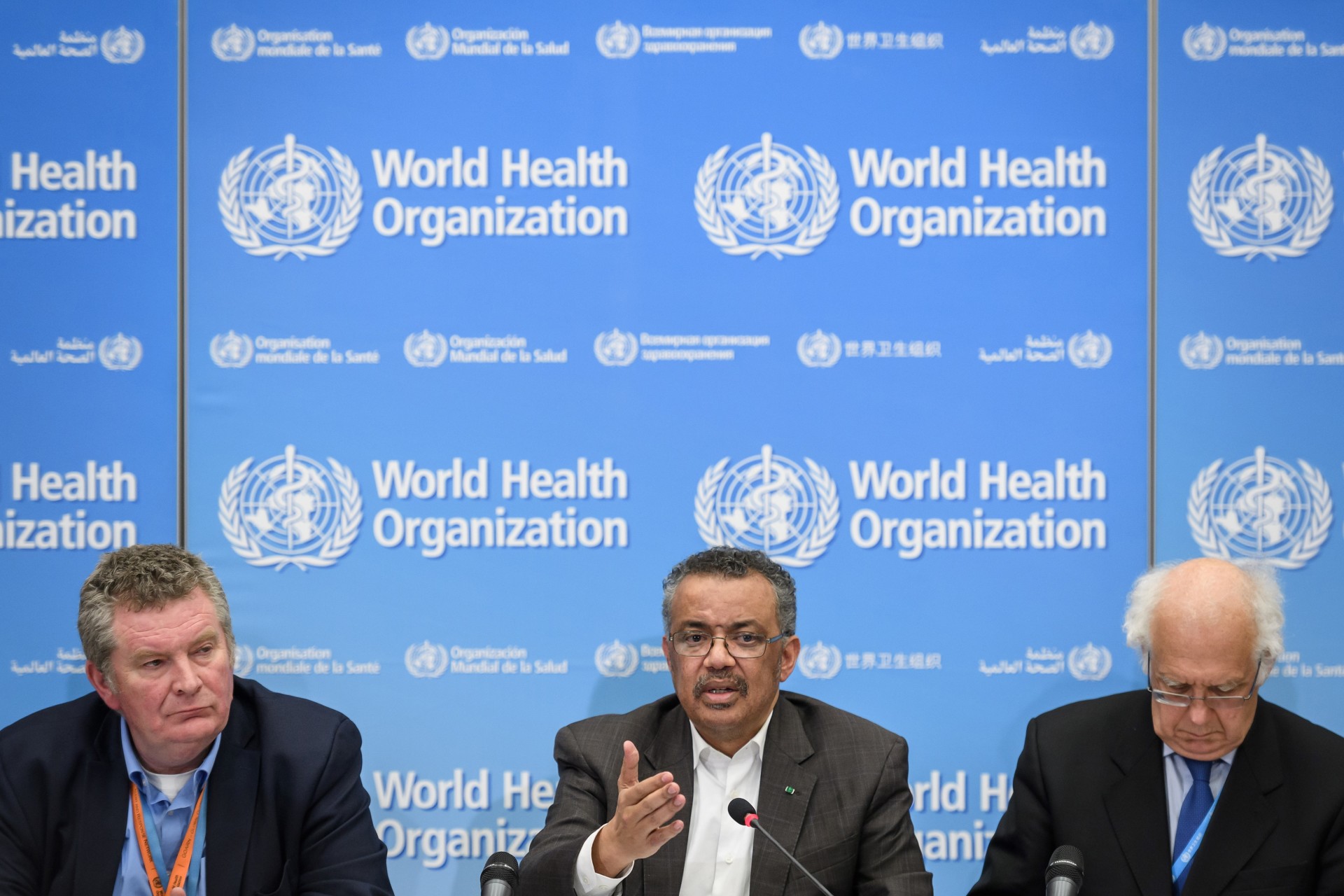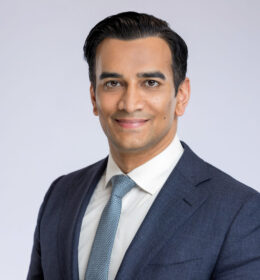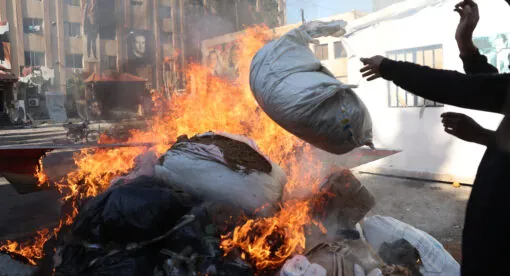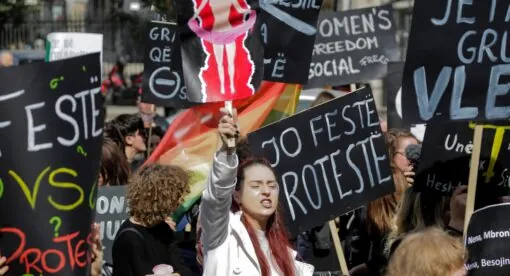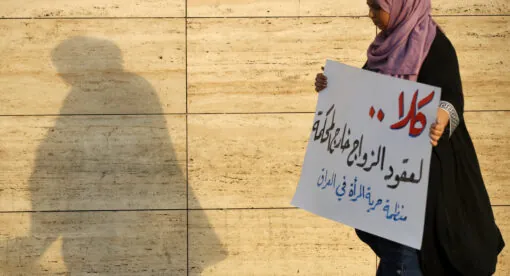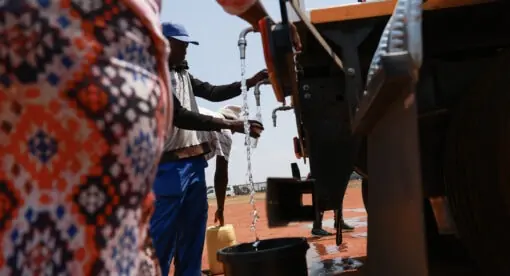The United States, as the largest donor to the World Health Organization, should initiate an investigation into the agency’s failures – including whether China had any role in those failures – and lead a global effort to reform the organization.
As the largest donor to the World Health Organization (WHO), the United States should use its leverage to spearhead a major reform of the global medical agency. Halting funding to the WHO will not, by itself, help roll back malignant Chinese influence on the international health agency; in fact, it will only worsen the problem. A complete overhaul of the agency will have to wait until after the international community is able to stand down from the COVID-19 emergency. However, Washington can use its influence as the provider of a quarter of the WHO’s funding to start the process forthwith.
The WHO should serve as the center of global coordination for managing pandemics such as COVID-19. However, despite repeated warnings, WHO officials showed unnecessary deference to highly suspect data on the coronavirus provided by the Chinese Communist Party and ignored critical warnings from countries like Taiwan on COVID-19’s human-to-human transfer. These and other failures cost the global community time in taking the necessary precautions and have shown that WHO is not up to the tasks set before it.
The WHO’s Mixed Record
The WHO is the U.N. agency tasked with preventing, as much as possible, global pandemics like COVID-19. The agency’s record on global pandemics is mixed. We generally only hear about it when there are problems, like the present crisis or the response to the Ebola outbreak in 2013. By the very nature of its work, we do not hear about, and do not care to think much about, the cases where the WHO and its local partners in the national and regional governments of the world get things right. For example, between 2000-2018, there have been 15 major infectious diseases that could have had a global impact. Of those, only SARS, MERS, Zika, and Ebola made it to the front of the international consciousness, and those diseases were eventually contained. Overall, this is a degree of success that must be recognized. Yet there is no denying that the COVID-19 pandemic represents a failure of international public health policy. And the WHO is at the center of this failure.
The fundamental issue for the agency is this: The WHO has had very limited direct access to the facts on the ground in China until a mission on Feb. 12. By then, the virus had already spread to other countries and other continents. But this does not let the WHO off the hook. In a situation such as this, in a sense, the WHO really cannot do much more than to take information from the local governments handling the situation on the ground. But it is telling that the organization continues to dance around the issue, even though it is now common knowledge that China attempted to suppress information about the emergence of the virus in the early days, and that is what helped the disease spread all over the world.
In other words, the leadership of the WHO is, out of submissiveness to China, avoiding certain relevant facts and playing politics. Can the WHO be blamed for being “politically sensitive” in a treacherous diplomatic environment where it needs to keep all countries, and especially large and prominent countries, in line? This kind of behavior is not ideal, but it is perhaps understandable.
What is absolutely not understandable, or forgivable, is that the WHO refused to accept information from Taiwan, when health officials in Taipei say they alerted the WHO at the end of December about the risk of human-to-human transmission of the new virus. The WHO failed to take this information into account out of reckless politicking, showing that the agency gave China an undue degree of deference when its moral duty is to have listened to all relevant information coming in.
Is this to say that the WHO is dangerously passive to Beijing? Yes. But this should not come as a surprise. Beijing has, over the years, become adept at navigating and pushing its interests on the global multilateral-agency stage. It already heads four of the 15 U.N. Specialized Agencies (International Civil Aviation Organization, the International Telecommunication Union, the Food and Agriculture Organization, and the U.N. Industrial Development Organization) so is becoming proficient at covertly asserting its national interest while the United States has taken a back seat.
The WHO’s Structural Weakness and Leadership Failings
But the problem with the WHO goes beyond just China. As the current pandemic illustrates, the WHO is inherently politicized. This is not because Director-General Tedros Adhanom or anyone else at the WHO has some perverse personal political ambitions they are playing out on the international stage. It is because of the nature of the U.N. system as a whole. All U.N. agencies, tasked as they are with lofty responsibilities like preventing global diseases, ending hunger, guaranteeing the safety of refugees, and so on, have pitifully little power to unilaterally do things to fulfill their mandates. Any attempts can only realistically be made through the national governments, if the big power players like China and Russia do not object to it. And when the big powers do become obstacles, one should expect these global agencies to at the very least voice their concerns – which the WHO repeatedly refused to do.
Adhanom, senior advisor Bruce Aylward (who was at the center of the Taiwan controversy), and others in the leadership of the WHO were put into a situation where they were forced to make political judgment calls. And however sympathetic we may otherwise be for their predicament, they must stand accountable for the judgment calls they made in their position. In this case, ignoring the warnings from Taiwan so as to not upset China was absolutely the wrong thing to do. They are individually responsible for the choices they made, and the institutional structure is collectively responsible for this failure, too.
The WHO leadership, it seems, interpreted the agency’s role as being nothing more than a glorified notice board upon which the governments of the world hang their notices of potential health issues emerging, as they see fit. So when the WHO leadership realized the information coming from China was highly suspect, it did not have the wherewithal to make that concern public and state that Beijing was not being transparent. And as long as the leaders treat the WHO as nothing more than a notice board for governments like China playing politics, the agency will not be able to prevent a future crisis like COVID-19.
But apportioning blame solely on the leadership will not improve the WHO’s response to the next crisis in which a powerful U.N. country’s government covers up a disease with global ramifications.
Suggestions for Reform
After blaming the WHO for not being able to predict the pandemic ahead of time, U.S. President Donald Trump said his administration will announce policy changes regarding the global health body, including a funding cut. As the largest donor to the WHO, Washington must lead an international reform initiative for the agency’s operations – an initiative that is long overdue. The United States must use its influence to transform the international organization into a far more effective entity. But the key issue that needs to be focused on is how to prevent the agency from being manipulated by actors such as China.
That is why the Trump administration should not wait for the dust to settle to launch an international inquiry to ascertain where exactly the WHO went wrong, the depth and extent of Chinese influence within its ranks, and deficiencies within its current structure. The WHO should be given every opportunity to explain, in a transparent and open setting, why it acted as it did. Based on the findings, the United States should lead the process of devising and implementing a fundamental reform.
A necessary step for such reform is to insulate the WHO from political calculations it currently is forced to make in situations such as this. This is to say the agency needs to be removed from the political control of the countries that fund it and that then becomes the sole conduits for information to the WHO on such pandemics. Every doctor in the world should be able to communicate with the WHO directly, through secret whistle-blower channels if necessary. The WHO must have its own labs and testing facilities independent of the control of any government. Members of its ranks must be protected from the normal hazards of speaking truth to authoritarian powers.
COVID-19 has created an unprecedented medical and economic situation across the world for which the WHO was clearly not prepared. That said, this pandemic is an opportunity to undertake those steps necessary to ensure that a future and potentially far more lethal outbreak can be dealt with before it wreaks havoc across the planet. This will only be possible if Washington reassumes global leadership and denies negative actors such as China the chance to exploit vulnerabilities in international agencies like WHO – agencies that the world clearly needs.
Dr. Azeem Ibrahim is the Director of Special Initiatives at the Newlines Institute. He is also an Adjunct Research Professor at the Strategic Studies Institute, US Army War College. Dr. Ibrahim is also author of “The Rohingyas: Inside Myanmar’s Hidden Genocide” (Hurst & OUP) and “Radical Origins: Why We Are Losing The Battle Against Islamic Extremism” (Pegasus New York).
The views expressed in this article are those of the author and not an official policy or position of the Newlines Institute.

